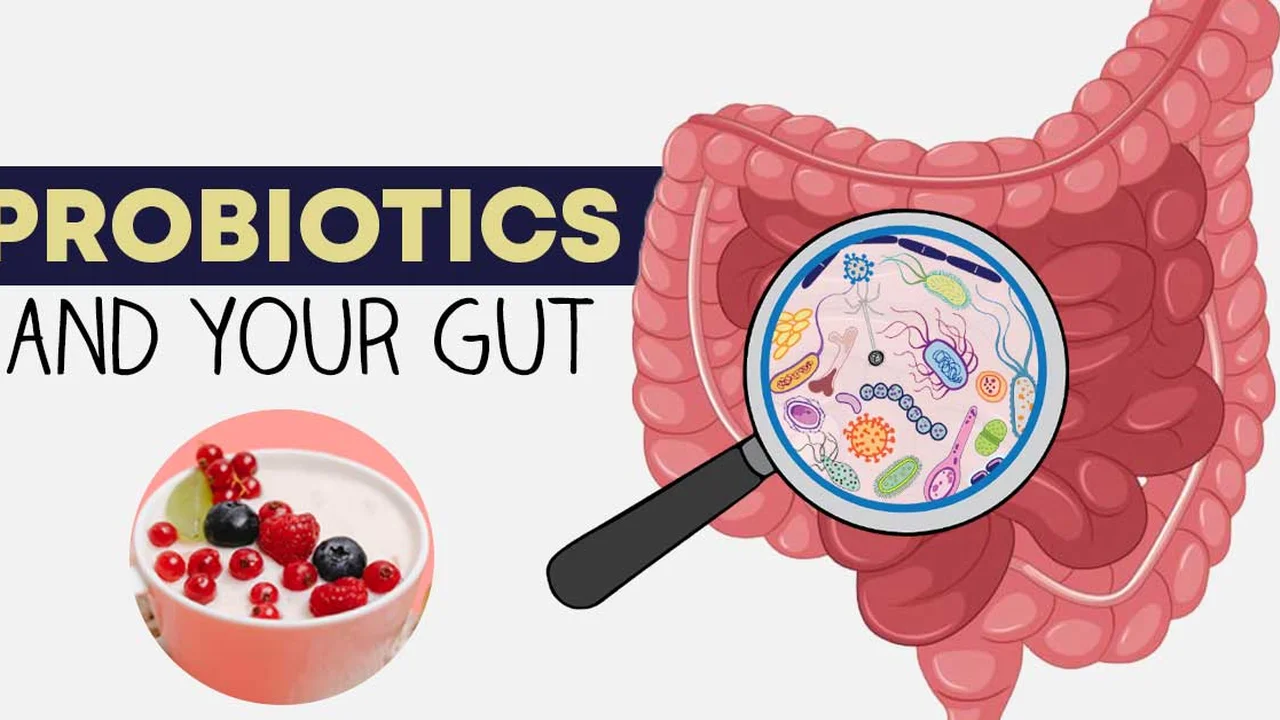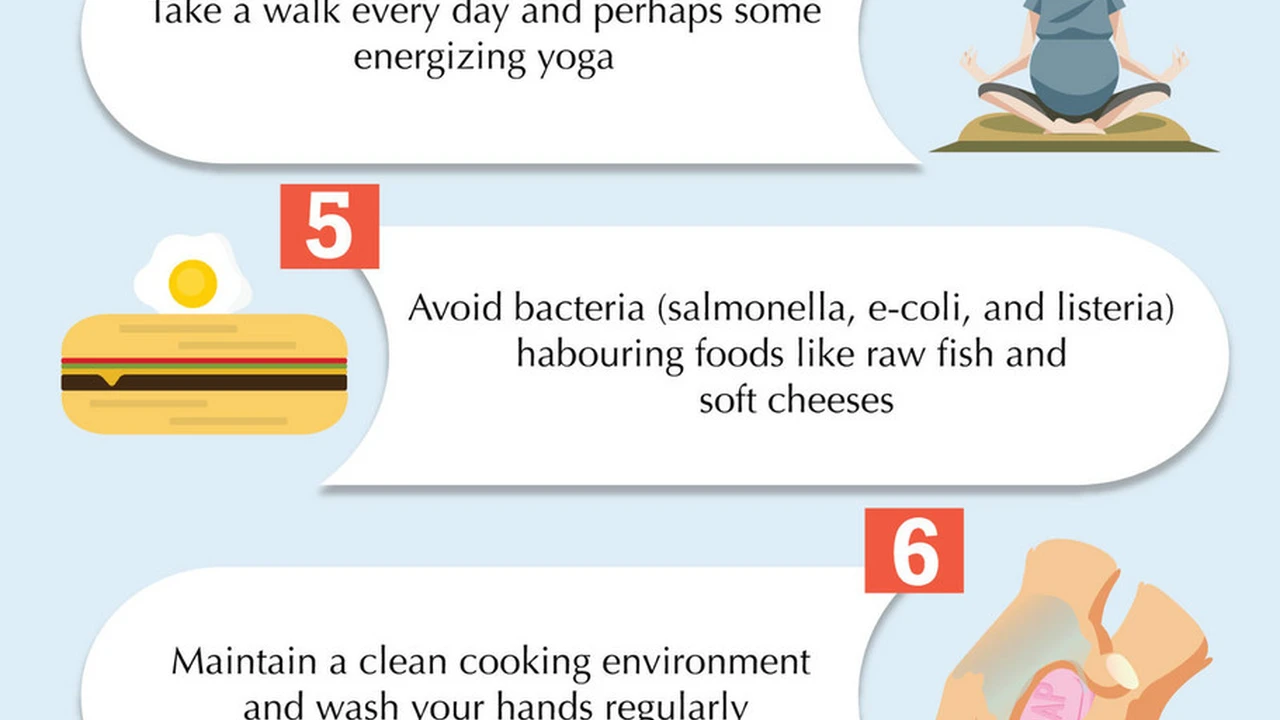The Importance of Gut Health: Probiotics and Prebiotics
Sample meta description.

Understanding Your Gut The Microbiome Explained
Okay, let's talk about your gut. It's not just where your food goes; it's a whole ecosystem down there! We're talking trillions of bacteria, fungi, viruses, and other microbes – collectively known as your gut microbiome. This isn't just some random collection of tiny creatures; it's a complex community that plays a vital role in your overall health. Think of it as a rainforest, but instead of trees and animals, it's bacteria and your immune system.
This microbiome influences everything from your digestion and nutrient absorption to your immune function and even your mood. A healthy, balanced gut microbiome means a stronger immune system, better digestion, and even a happier mind! But when things get out of whack – like when the bad bacteria outnumber the good – that's when problems start brewing. We're talking bloating, gas, constipation, diarrhea, and even more serious issues like inflammatory bowel disease (IBD) and irritable bowel syndrome (IBS).
So, why is gut health suddenly such a hot topic? Well, scientists are just beginning to understand the true extent of its influence. Research is constantly revealing new connections between the gut microbiome and various aspects of health, making it a crucial area of focus for anyone looking to optimize their well-being. It's not just a trend; it's a fundamental aspect of health that we're finally starting to understand.
Probiotics Power Up Your Gut Good Bacteria Boost
Now, let's get to the good stuff: probiotics! These are live microorganisms – the “good” bacteria – that, when consumed in adequate amounts, confer a health benefit to the host (that's you!). Think of them as reinforcements for your existing army of beneficial bacteria. They help to re-establish balance in your gut microbiome, crowding out the bad bacteria and helping to restore harmony.
You can find probiotics in a variety of sources, including fermented foods like yogurt, kefir, sauerkraut, kimchi, and kombucha. These foods are naturally rich in probiotics, thanks to the fermentation process. But you can also find probiotics in supplement form, which can be a convenient way to ensure you're getting a consistent dose.
What do probiotics actually do? Well, they help to improve digestion by breaking down food and absorbing nutrients. They also strengthen your immune system by stimulating the production of antibodies and other immune cells. And they can even help to reduce inflammation in the gut, which can alleviate symptoms of digestive disorders like IBS.
It's important to choose the right probiotic supplement for your needs. Look for products that contain multiple strains of bacteria, as different strains offer different benefits. Also, pay attention to the number of colony-forming units (CFUs), which indicates the number of live bacteria in each dose. A higher CFU count generally means a more potent probiotic.
Prebiotics Fueling The Good Gut Bugs Their Food Source
Okay, so you've got your probiotics – the good bacteria. But what do they eat? That's where prebiotics come in! Prebiotics are non-digestible fibers that act as food for the beneficial bacteria in your gut. They essentially provide the fuel that allows these bacteria to thrive and multiply.
You can find prebiotics in a variety of plant-based foods, including fruits, vegetables, and whole grains. Some of the best sources of prebiotics include onions, garlic, leeks, asparagus, bananas, oats, and apples. These foods contain types of fiber like inulin, fructooligosaccharides (FOS), and resistant starch, which are particularly beneficial for gut bacteria.
When you consume prebiotics, they travel undigested to your large intestine, where they're fermented by the good bacteria. This fermentation process produces short-chain fatty acids (SCFAs), such as butyrate, acetate, and propionate. These SCFAs have a wide range of health benefits, including reducing inflammation, improving gut barrier function, and even providing energy for the cells in your colon.
Think of it this way: probiotics are the gardeners, and prebiotics are the fertilizer. You need both to create a thriving garden – or in this case, a healthy gut microbiome. By feeding your good bacteria with prebiotics, you're helping them to flourish and outcompete the bad bacteria.
Probiotics vs Prebiotics The Dynamic Duo for Gut Wellness
So, probiotics and prebiotics – are they the same thing? Absolutely not! While they both contribute to gut health, they work in different ways. Probiotics are the live bacteria themselves, while prebiotics are the food that fuels those bacteria. Think of it as planting a garden: probiotics are the seeds, and prebiotics are the soil and fertilizer.
Taking probiotics without prebiotics is like planting seeds in poor soil – they might not thrive. And taking prebiotics without probiotics is like fertilizing an empty garden – you're not getting the full benefit. The best approach is to combine both probiotics and prebiotics for a synergistic effect. This is often referred to as "synbiotics."
Synbiotics work together to create a more robust and resilient gut microbiome. The probiotics introduce new beneficial bacteria, while the prebiotics provide the fuel they need to grow and multiply. This combination can lead to significant improvements in digestion, immunity, and overall health. It's the ultimate gut health power couple!
Specific Probiotic Product Recommendations Usage Scenarios and Price Comparisons
Okay, let's get down to specifics. Choosing the right probiotic supplement can be overwhelming, so let's break down some popular options, their uses, and price points:
Culturelle Digestive Daily Probiotic Capsules Gut Health and Immunity Support
Description: Culturelle is a well-known brand that contains Lactobacillus rhamnosus GG, one of the most researched probiotic strains. It's known for its ability to survive stomach acid and reach the intestines, where it can effectively colonize and support gut health.
Usage Scenario: Great for daily maintenance of gut health, especially for those prone to occasional digestive upset, bloating, or gas. Also helpful for supporting immune function during cold and flu season.
Price: Around $25-$30 for a 30-capsule bottle. Often found in drugstores and online retailers.
Pros: Well-researched strain, easy to find, generally well-tolerated.
Cons: Only contains one strain of bacteria, may not be as effective for those with more complex gut issues.
Garden of Life Dr Formulated Probiotics Once Daily Women's Shelf Stable
Description: This probiotic is specifically formulated for women and contains a blend of 16 different probiotic strains, including Lactobacilli and Bifidobacteria. It also contains prebiotics to help nourish the probiotic bacteria.
Usage Scenario: Ideal for women looking to support vaginal health, urinary tract health, and overall gut health. The once-daily formula is convenient, and the shelf-stable formula doesn't require refrigeration.
Price: Around $35-$40 for a 30-capsule bottle.
Pros: Contains a diverse blend of strains, includes prebiotics, shelf-stable.
Cons: More expensive than some other options, may not be suitable for men.
Seed DS-01 Daily Synbiotic Probiotic and Prebiotic For Gut Health
Description: Seed is a premium synbiotic that contains a blend of 24 clinically-studied probiotic strains and a prebiotic outer capsule. It's designed to survive stomach acid and reach the intestines intact.
Usage Scenario: Suitable for anyone looking for a high-quality, comprehensive synbiotic to support gut health, digestion, and overall well-being. The subscription model ensures a consistent supply.
Price: Around $50 per month for a subscription.
Pros: Contains a diverse blend of clinically-studied strains, includes a prebiotic outer capsule, designed for optimal survival.
Cons: More expensive than other options, requires a subscription.
Klaire Labs Ther-Biotic Complete Probiotic Formula High Potency and Broad Spectrum
Description: Klaire Labs offers a high-potency probiotic with a broad spectrum of 12 different probiotic species. It's designed to support a healthy balance of gut flora and is free of common allergens.
Usage Scenario: This is a good option for individuals with more significant gut health concerns or those who have taken antibiotics. The high potency can help to quickly re-establish a healthy gut microbiome.
Price: Around $60-$70 for a 60-capsule bottle.
Pros: High potency, broad spectrum of strains, free of common allergens.
Cons: More expensive than some other options, may be too potent for some individuals.
Integrating Probiotics and Prebiotics Into Your Daily Diet Practical Tips
Okay, so you know why probiotics and prebiotics are important, and you've got some product recommendations. Now, how do you actually incorporate them into your daily life? Here are some practical tips:
- Start with small changes: Don't try to overhaul your entire diet overnight. Start by adding one or two probiotic-rich foods or prebiotic-rich foods to your daily routine.
- Focus on fermented foods: Incorporate foods like yogurt, kefir, sauerkraut, kimchi, and kombucha into your diet. These foods are naturally rich in probiotics and can be a delicious and easy way to boost your gut health.
- Load up on prebiotic-rich foods: Include plenty of fruits, vegetables, and whole grains in your diet. Onions, garlic, leeks, asparagus, bananas, oats, and apples are all excellent sources of prebiotics.
- Consider a synbiotic supplement: If you're not getting enough probiotics and prebiotics from your diet, consider taking a synbiotic supplement. Look for a product that contains both probiotics and prebiotics for a synergistic effect.
- Be consistent: Gut health is not a quick fix. It's an ongoing process that requires consistent effort. Make probiotics and prebiotics a regular part of your daily routine for long-term benefits.
- Listen to your body: Pay attention to how your body responds to different probiotics and prebiotics. Some people may experience mild digestive upset when they first start taking them, but this usually subsides within a few days. If you experience any persistent or severe symptoms, consult with your doctor.
The Gut-Brain Connection How Gut Health Impacts Mental Well-being
Did you know your gut and your brain are constantly communicating? It's true! This connection is known as the gut-brain axis, and it plays a significant role in your mental health. The gut microbiome influences the production of neurotransmitters like serotonin, dopamine, and GABA, which are crucial for regulating mood, anxiety, and even cognitive function.
When your gut microbiome is out of balance, it can disrupt the production of these neurotransmitters, leading to mood swings, anxiety, and even depression. Conversely, a healthy gut microbiome can promote the production of these neurotransmitters, leading to improved mood, reduced anxiety, and enhanced cognitive function.
This is why gut health is so important for mental well-being. By nourishing your gut microbiome with probiotics and prebiotics, you can help to support the production of these crucial neurotransmitters and improve your overall mental health.
Lifestyle Factors Affecting Gut Health Beyond Diet Stress Sleep and Exercise
While diet is undoubtedly a crucial factor in gut health, it's not the only one. Several other lifestyle factors can also significantly impact your gut microbiome. These include:
- Stress: Chronic stress can disrupt the balance of your gut microbiome, leading to inflammation and digestive problems.
- Sleep: Lack of sleep can also negatively impact your gut microbiome, leading to reduced diversity and increased inflammation.
- Exercise: Regular exercise can promote a healthy gut microbiome by increasing diversity and reducing inflammation.
- Medications: Certain medications, such as antibiotics, can disrupt the balance of your gut microbiome.
- Hygiene: While good hygiene is essential, excessive use of antibacterial products can also harm your gut microbiome by killing off beneficial bacteria.
To optimize your gut health, it's essential to address these lifestyle factors in addition to your diet. Manage your stress levels, prioritize sleep, exercise regularly, and use medications and antibacterial products judiciously.
The Future of Gut Health Personalized Approaches and Emerging Research
The field of gut health is rapidly evolving, and researchers are constantly uncovering new insights into the complex relationship between the gut microbiome and human health. In the future, we can expect to see more personalized approaches to gut health, based on individual microbiome profiles.
Researchers are developing advanced techniques for analyzing the gut microbiome, which will allow them to identify specific imbalances and tailor interventions accordingly. This could lead to more effective treatments for a wide range of conditions, from digestive disorders to autoimmune diseases.
We can also expect to see the development of new and innovative probiotic and prebiotic products, as well as dietary recommendations based on individual gut microbiome profiles. The future of gut health is bright, and we're just beginning to scratch the surface of what's possible.
:max_bytes(150000):strip_icc()/277019-baked-pork-chops-with-cream-of-mushroom-soup-DDMFS-beauty-4x3-BG-7505-5762b731cf30447d9cbbbbbf387beafa.jpg)






